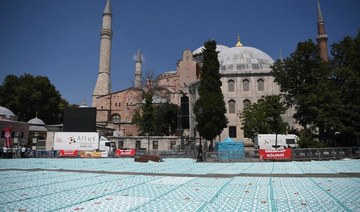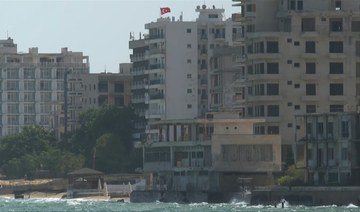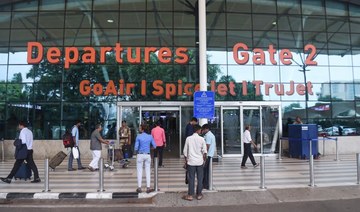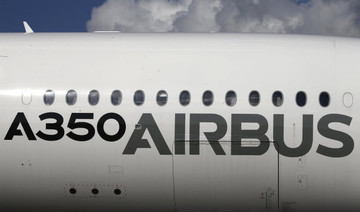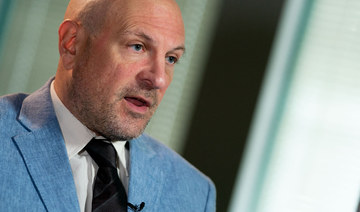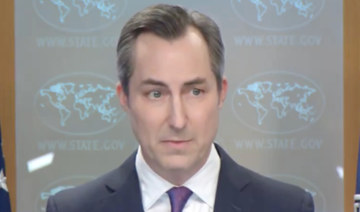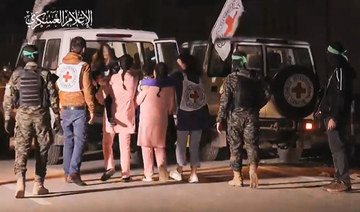ANKARA: The Turkish public wakes up every day to statements from leading political figures in Ankara promising a “new wave of reform” that is expected to arrive soon.
However, considering the country’s past record on the rule of law, democracy, human rights and management of the economy, there is a a big question mark over how these actors will deliver on their commitments.
Promises of reform have become a recurrent theme in President Recep Tayyip Erdogan and his government member’s speeches in recent days, especially after the sudden reshuffle of the country’s top economic team, which includes the resignation of Berat Albayrak, the finance minister and also Erdogan’s son-in-law.
Erdogan has chosen a conciliatory tone in his speeches directed at the financial market, speeches reminiscent of those he made in 2014 about reform of the Turkish economy.
On Nov. 11, Erdogan pledged the launch of market-friendly policies, and to contain inflation and put the country back on a path to growth.
The Turkish lira has lost about a third of its value this year and almost half of its value against the US dollar since May 2018 — making it among the worst performers in emerging markets — although it bounced back following the redesign of the country’s economic management team and the appointment of a new central bank governor and finance minister.
The newly appointed figures both committed to prioritizing price stability in a bid to please global markets, although a decision to raise interest rates to a significant level is expected to be announced on Nov. 19.
Berk Esen, a political scientist from Sabanci University in Istanbul, said that Albayrak’s resignation is a blow to Erdogan, whose regime has fallen on hard times due to the economic downturn and growing popular opposition against his government.
Esen does not attribute too much significance to Erdogan’s and his A team’s recent statements about the start of a new era of reforms in the economy and judiciary.
“Under the ruling Justice and Development Party’s (AKP) rule, Turkey has experienced several waves of ‘reform’ that led to centralization of power in the hands of the ruling party and its leader,” he told Arab News.
Justice is another area where the government suffers from internal bleeding from disenchanted party members and constituencies.
Along with declining foreign reserves, a weakening currency and growing isolation due to engagement in several battle scenes in its region, Turkey’s credentials in the justice field are on a downward trend and making investors concerned about the country.
However, Justice Minister Abdulhamit Gul promised speedy trials and less pre-trial prison time in another speech on Nov. 12 in which he criticized lower courts going against decisions of the country’s constitutional court as harmful to investor trust.
“The judiciary should only consider the conscious, law and constitution. Let justice be served, if it means the coming of doomsday,” he said.
In the meantime, the Turkish Council of Judges and Prosecutors HSK will re-evaluate the high-profile case of Turkish philanthropist and businessman Osman Kavala, who has been behind bars since Nov. 1, 2017, as part of a legal saga illustrating the deterioration of the rule of law in Turkey.
The new trial of Kavala, accused of “attempting to undermine the constitutional order,” is set to begin on Dec. 18.
Esen thinks that following Albayrak’s resignation, Erdogan needs to strengthen the ranks of his regime and project an image of stability and calm.
“There were major defections from his party over the past year so he needs to find a way to stop the hemorrhaging of party cadres and votes to the newly established splinter parties and restore confidence in the Turkish economy,” he said.
Erdogan’s AKP is facing a big fall in popularity according to the latest polls, which reveal that public support dropped below 30 percent for the first time, while his nationalistic partner’s vote share drops below the 10 percent election threshold. This decline is significant considering that the AKP secured 43 percent of the vote in the previous parliamentary elections in 2018.
Ali Babacan, former economy tzar and the founder of a breakaway party DEVA, recently launched his campaign, “Don’t be Afraid, Turkey,” urging people to speak their minds and express themselves freely.
According to Esen, Joe Biden’s election as US president will bring the issue of sanctions back to the table over Turkey’s purchase of Russian air defenses when he takes office in January 2021.
“In response, Erdogan is probably seeking a restorationist course in foreign policy and the economy to stabilize his government. If these moves damage his agreement with his coalition partner and leader of the nationalistic MHP, Devlet Bahceli, the option of early elections may arise,” he said.
Burak Bilgehan Ozpek, an Ankara-based political scientist, said that the latest reform promises from high-ranking governmental officials showed that the AKP had noticed its declining political power since local elections last year ,where it lost the mayorship of several key cities to the opposition.
“So far, Albayrak and his team were encouraging a policy of criminalization of all dissident actors and they were implementing a political tutelage solely based on national security paradigms. However, this choice further polarized the country and fueled a one-man rule,” he told Arab News.
According to Ozpek, the ruling government’s only option to protect its voter base is by initiating reforms, ending judicial scandals, transforming its monopoly on the media and opening up space for people to freely express themselves.
“However, if Erdogan doesn’t give any concession from his own power, these reforms cannot materialize, and all these promises would remain on paper, leading to a freefall in their electoral base,” he said.
Will Turkish government deliver on its latest political promises?
https://arab.news/9wnta
Will Turkish government deliver on its latest political promises?
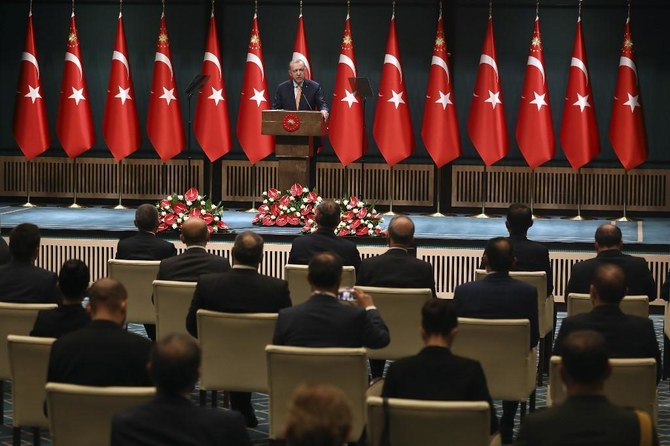
- Promises of reform have become a recurrent theme in Erdogan and his government member’s speeches recently
- The Turkish lira has lost about a third of its value this year and almost half of its value against the US dollar since May 2018
As airplane makers struggle to meet demand, Morocco wants to become a manufacturing hub

- The North African kingdom is among a list of countries vying for contracts with plane makers looking to speed up production to meet demand
- Many companies eye Morocco as a source for comparatively cheap labor and workers with an expanding pool of skilled workers
CASABLANCA, Morocco: Moroccan officials want to turn the country into an aviation hub, luring investors aiming to spread out their supply chains to more nations with available and affordable workers.
The North African kingdom is among a longer list of countries vying for contracts with big manufacturers looking to speed up production and deliver more planes to meet demand. Companies like Boeing and Airbus — as well as the manufacturers that build their components — are outsourcing design, production and maintenance to countries from Mexico to Thailand.
In Morocco, efforts to grow the country’s $2 billion-a-year aerospace industry are part of a years-long push to transform the largely agrarian economy through subsidizing manufacturers of planes, trains and automobiles. Officials hope it dovetails with efforts to grow Moroccan airlines, including the state-owned Royal Air Maroc.
“The needs are huge and we are in a very good position,” said Hamid Abbou, the airline’s CEO. “Most of the big suppliers in Europe are struggling to get people to work in this industry. We don’t have that issue.”
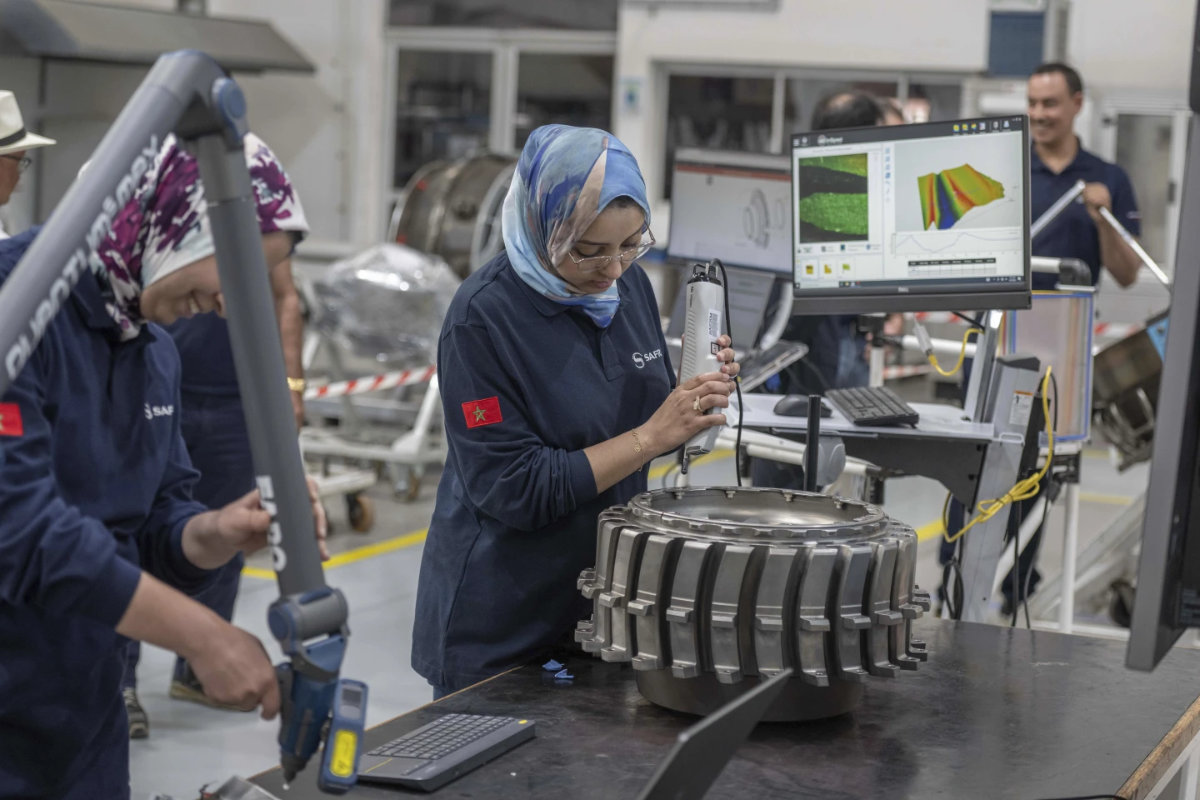
Despite hopes among its cheerleaders, the air travel industry faces headwinds. When demand rebounded after much air traffic stopped during the pandemic, manufacturers faced challenges building enough planes to meet demand from airlines. For Boeing, delays caused by supply chain issues were compounded by high-profile emergencies and deadly crashes that further curtailed deliveries.
From eastern Europe to southeast Asia, new levels of demand have forced manufacturers to seek out new locations to build and repair parts.
Safran Aircraft Engines, a French manufacturer, sends engines for Boeing 737s and Airbus 320s to a repair plant outside of Casablanca every six to eight years and then sends them back to airlines from countries including Brazil, Saudi Arabia, the United Kingdom and Ireland.
The company is among 130 in the sector active in Morocco, where parts ranging from wings to fuselages are produced in an industry that employs 42% women — a proportion that industry lobbyists say is larger than its European and North American manufacturing industry counterparts.
Though many companies eye Morocco as a source for comparatively cheap labor, the industry and government have worked to train skilled workers at IMA, an institute for aeronautics professions in Casablanca.
At an event celebrating Safran’s 25-year partnership with Royal Air Maroc, Safran CEO Jean-Paul Alary said he hoped Morocco’s aviation industry would continue to expand, particularly as industrywide demand increases and companies face labor shortages in Europe.
“It’s the access to well-qualified talent that’s been well-trained,” Alary said of Morocco. “They are the key players for achieving our goals.”
Another former US State Department official alleges Israeli military gets ‘special treatment’ on abuses
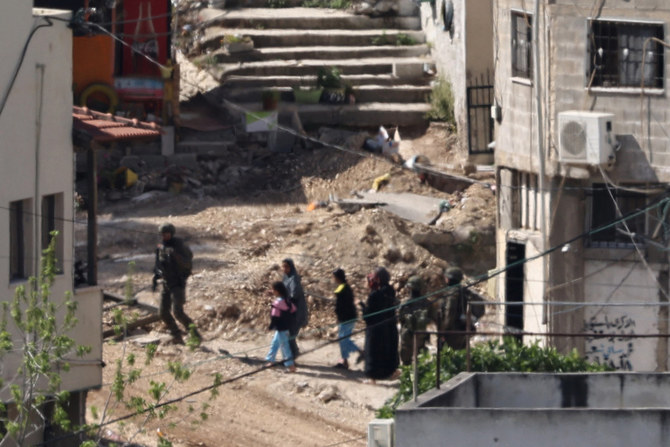
- “In my experience, Israel gets special treatment that no other country gets,” says Charles O. Blaha, former director of a State Department security and human rights office
- Late last year, Josh Paul resigned as a director overseeing arms transfers to other countries’ militaries in October in protest of the US rushing arms to Israel amid its war in Gaza
WASHINGTON: A former senior US official who until recently helped oversee human-rights compliance by foreign militaries receiving American military assistance said Wednesday that he repeatedly observed Israel receiving “special treatment” from US officials when it came to scrutiny of allegations of Israeli military abuses of Palestinian civilians.
The allegation comes as the Biden administration faces intense pressure over its ally’s treatment of Palestinian civilians during Israel’s war against Hamas in Gaza. And it matters because of who said it: Charles O. Blaha.
Before leaving the post in August, he was a director of a State Department security and human rights office closely involved in helping ensure that foreign militaries receiving American military aid follow US and international humanitarian and human rights laws.
Blaha said his departure from the State Department after decades of service was not related to the US-Israeli security relationship. He is the second senior State official involved in that relationship to assert that when it comes to Israel, the US is reluctant to enforce laws required of foreign militaries receiving American aid.
“In my experience, Israel gets special treatment that no other country gets,” Blaha said. “And there is undue deference, in many cases, given” to Israeli officials’ side of things when the US asks questions about allegations of Israeli wrongdoing against Palestinians, he added.
He spoke to reporters at an event where he and other members of an unofficial, self-formed panel of former senior US civilian and military officials released a report pointing to civilian deaths in specific airstrikes in Gaza. They said there was “compelling and credible” evidence that Israeli forces had acted illegally.
Blaha’s comments echoed those of another State Department official and panel member, Josh Paul. Paul resigned as a director overseeing arms transfers to other countries’ militaries in October in protest of the US rushing arms to Israel amid its war in Gaza.
Asked about the allegations from the two, a State Department spokesman, Vedant Patel, said “there is no double standard, and there is no special treatment.”
Israeli officials did not immediately respond to a request for comment. Israel consistently says it follows all laws in its use of US military aid, investigates allegations against its security forces and holds offenders accountable.
Israel historically is the United States’ biggest recipient of military aid, and Biden on Wednesday signed legislation for an additional $26 billion in wartime assistance. But Biden has come under growing pressure over that support as Palestinian deaths mount.
The latest Israel-Hamas war began on Oct. 7, when Hamas and Islamic Jihad, two militant groups backed by Iran, carried out a cross-border attack that killed 1,200 people in Israel. Israel responded with an offensive in Gaza that has caused widespread devastation and killed more than 34,000 people, according to local health officials.
In coming days, the administration says it will announce its official findings from reviews it did into allegations of especially serious human rights abuses by specific Israeli military units. Those units would be barred from receiving US military aid if the US review confirms those allegations.
Separately, the Biden administration also is expected to disclose by May 8 whether it has verified assurances from Israel that the country is not using US military aid in a way that violates international or human rights law. Both Israel’s written assurance and the US verification were mandated by a new presidential national security memo that Biden issued in February.
The February agreement was negotiated between the Biden administration and members of his own Democratic Party, who had been pushing for the US to begin conditioning military aid to Israel on improving treatment of Palestinian civilians.
Panel members released their report Wednesday to urge the US to scrutinize specific attacks in Gaza that the former officials argued should lead to a conclusion that Israel was wrong when it confirmed it was complying with the laws. If that determination is made, the US could then suspend military aid.
Wednesday’s unofficial report points to 17 specific strikes on apartments, refugee camps, private homes, journalists and aid workers for which the former US officials and independent experts allege there’s no evidence of the kind of military target present to justify the high civilian death tolls.
They include an Oct. 31 airstrike on a Gaza apartment building that killed 106 civilians, including 54 children. Israeli officials offered no reason for the strike, and a Human Rights Watch probe found no evidence of a military target there, the officials said. Israel has said in many of the instances that it is investigating.
Hamas releases video showing well-known Israeli-American hostage
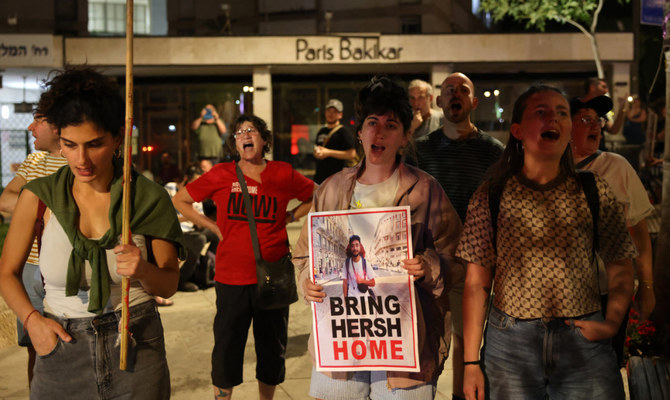
- Goldberg-Polin is one of the most recognized captives. Posters with his image are pinned up across Israel
JERUSALEM: Hamas released a hostage video on Wednesday showing a well-known Israeli-American man who was among scores of people abducted by the militants in the attack that ignited the war in Gaza.
The video was the first sign of life of Hersh Goldberg-Polin since Hamas’ Oct. 7 attack on southern Israel, and its release ignited new protests in Jerusalem calling on the government to do more to secure the captives’ release.
In the video, Goldberg-Polin accused Israel’s government of abandoning the people who are being held hostage by Hamas. He also claimed that some 70 captives have been killed in Israel’s bombing campaign. Goldberg-Polin was clearly speaking under duress, and the claim could not be independently verified. It was not clear when the video was made.
Goldberg-Polin, 23, was at the Tribe of Nova music festival when Hamas launched its attack from nearby Gaza. In the video, Goldberg-Polin is missing part of his left arm.
Witnesses said he lost it when attackers tossed grenades into a shelter where people had taken refuge. He had tied a tourniquet around it before being bundled into the truck by Hamas.
Goldberg-Polin is one of the most recognized captives. Posters with his image are pinned up across Israel. His mother, Rachel Goldberg, has met with world leaders and addressed the United Nations.
Though there was no date on the video, Goldberg-Polin appeared to reference the weeklong Jewish holiday of Passover, which began on Monday.
His parents said they were relieved to see him alive but were concerned about his health and well-being, as well as that of the other hostages.
“We are here today with a plea to all of the leaders of the parties who have been negotiating to date,” said his father, Jon Polin, naming Egypt, Israel, Qatar, the United States and Hamas.
“Be brave, lean in, seize this moment and get a deal done to reunite all of us with our loved ones and end the suffering in this region,” he said.
Hostages’ families have accused Israeli Prime Minister Benjamin Netanyahu’s government of not doing enough to secure the release of their relatives.
After the Hamas video was made public, hundreds of Israelis gathered outside Netanyahu’s official residence in central Jerusalem on Wednesday, calling on the government to strike a deal to bring home hostages. Many held posters of Goldberg-Polin, and some of the protesters set cardboard boxes on fire.
“We are afraid for his life, so we went to protest and call for the government to do whatever is possible to bring him and everybody else back, as soon as possible,” said one of the marchers, Nimrod Madrer. “Bring them back home,” the crowd chanted.
At the nearby Great Synagogue, a large crowd jeered the country’s ultranationalist national security minister, Itamar Ben-Gvir, chanting “shame” as he exited the building following a Passover gathering. One protester banged on Ben-Gvir’s car and was pushed away by police as it drove off.
Hamas and other militants abducted around 250 people in the Oct. 7 attack and killed around 1,200, mostly civilians. They are still believed to be holding around 100 hostages and the remains of some 30 others. Most of the rest were freed in November in exchange for the release of 240 Palestinians imprisoned by Israel.
Khalil Al-Hayya, a senior Hamas official, said Goldberg-Polin’s family had asked mediators to inquire about his fate for humanitarian reasons.
His family was “searching the world for any sign of him,” Al-Hayya said in an interview with Hamas-run Al-Aqsa TV broadcast on Wednesday. Hamas’ armed wing ”sent a strong message by publishing this young man’s message directed at Netanyahu,” Al-Hayya said.
The US, Qatar and Egypt have spent months trying to broker another ceasefire and hostage release, but the talks appear to have stalled. Hamas has said it will not release the remaining hostages unless Israel ends the war, which has killed over 34,000 Palestinians, according to local officials.
Netanyahu has rejected those demands, and says Israel remains committed to destroying Hamas and bringing all the hostages home. He has come under mounting criticism in Israel, where some say it will be impossible to do both.
Wars in Gaza and Sudan ‘drive hunger crisis affecting 280 million worldwide’
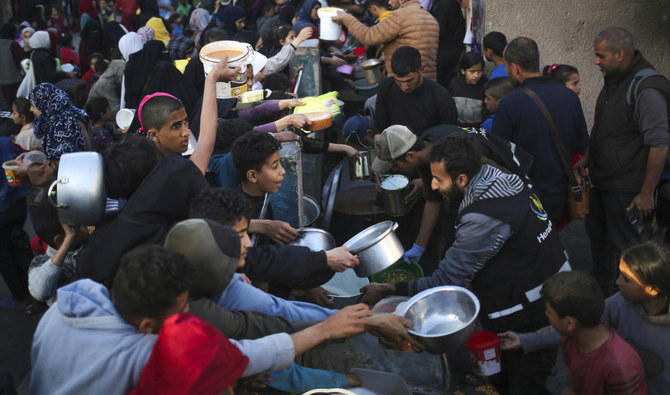
- New report on global food insecurity says outlook for 2024 is ‘bleak’
JEDDAH: More than 280 million people worldwide suffered from acute hunger last year in a food security crisis driven by conflicts in Gaza and Sudan, UN agencies and development groups said on Wednesday.
Economic shocks also added to the number of victims, which grew by 24 million compared with 2022, according to a report by the Food Security Information Network.
The report, which called the global outlook for this year “bleak,” is produced for an international alliance of UN agencies, the EU and governmental and non-governmental bodies.
Food insecurity is defined as when populations face food deprivation that threatens lives or livelihoods, regardless of the causes or length of time. More geographical areas experienced “new or intensified shocks” and there was a “marked deterioration in key food crisis contexts such as Sudan and the Gaza Strip,” said Fleur Wouterse, a senior official at the UN’s Food and Agricultue Organization.
Since the first report by the Global Food Crisis Network covering 2016, the number of food-insecure people has risen from 108 million to 282 million, Wouterse said. The share of the population affected within the areas concerned had doubled from 11 percent to 22 percent, she said.
Protracted major food crises are ongoing in Afghanistan, the Democratic Republic of Congo, Ethiopia, Nigeria, Syria and Yemen. “In a world of plenty, children are starving to death,” UN Secretary-General Antonio Guterres said.
“War, climate chaos and a cost-of-living crisis, combined with inadequate action, mean that almost 300 million people faced acute food crisis in 2023. Funding is not keeping pace with need.”
According to the report, situations of conflict or insecurity have become the main cause of acute hunger. For 2024, progress would depend on the end of hostilities, said Wouterse, who said aid could rapidly alleviate the crisis in Gaza or Sudan, for example, once humanitarian access to the areas was possible.
Yemen’s Houthis say they targeted American and Israeli ships

- The Iran-aligned group said it targeted the US ship Maersk Yorktown, an American destroyer in the Gulf of Aden and Israeli ship MSC Veracruz in the Indian Ocean
- US military confirms attack and said it downed one anti-ship missile and four drones on Wednesday
CAIRO/DUBAI: Houthi militants in Yemen have attacked what they said were two American ships and an Israeli vessel, the group’s military spokesman said on Wednesday, the first such attack in more than two weeks.
The Iran-aligned group said it targeted the US ship Maersk Yorktown, an American destroyer in the Gulf of Aden and Israeli ship MSC Veracruz in the Indian Ocean, the spokesman, Yahya Sarea, said in a televised speech.
American authorities confirmed the attack and said US-led coalition forces off the coast of Yemen shot down four drones and an anti-ship missile launched by the Houthis.
In a statement on X, formerly Twitter, the US Central Command (CENTCOM) said that just before noon Sanaa time (0900 GMT) a coalition vessel "successfully engaged one anti-ship ballistic missile (ASBM)" launched from Houthi controlled areas of Yemen.
It was determined that the ASBM and UAVs (drones) presented an imminent threat to US, coalition, and merchant vessels in the region," CENTCOM said.
Yemen’s Houthis have been attacking ships in the Red Sea region since November in what they say is a campaign of solidarity with Palestinians fighting Israel in Gaza.
“The Yemeni armed forces confirm they will continue to prevent Israeli navigation or any navigation heading to the ports of occupied Palestine in the Red and Arabian Seas, as well as in the Indian Ocean,” Sarea said on Wednesday.
Separately, British maritime security firm Ambrey said earlier on Wednesday that it was aware of an incident southwest of the port city of Aden, an area where the Houthis often target ships they say are linked to Israel or the United States.
The vessel reported an “explosion in the water” approximately 72 nautical miles east-southeast of Djibouti, an updated advisory from Ambrey said.
Houthi attacks have disrupted global shipping through the Suez Canal, forcing firms to re-route to longer and more expensive journeys around southern Africa. The United States and Britain have launched strikes on Houthi targets in Yemen.



